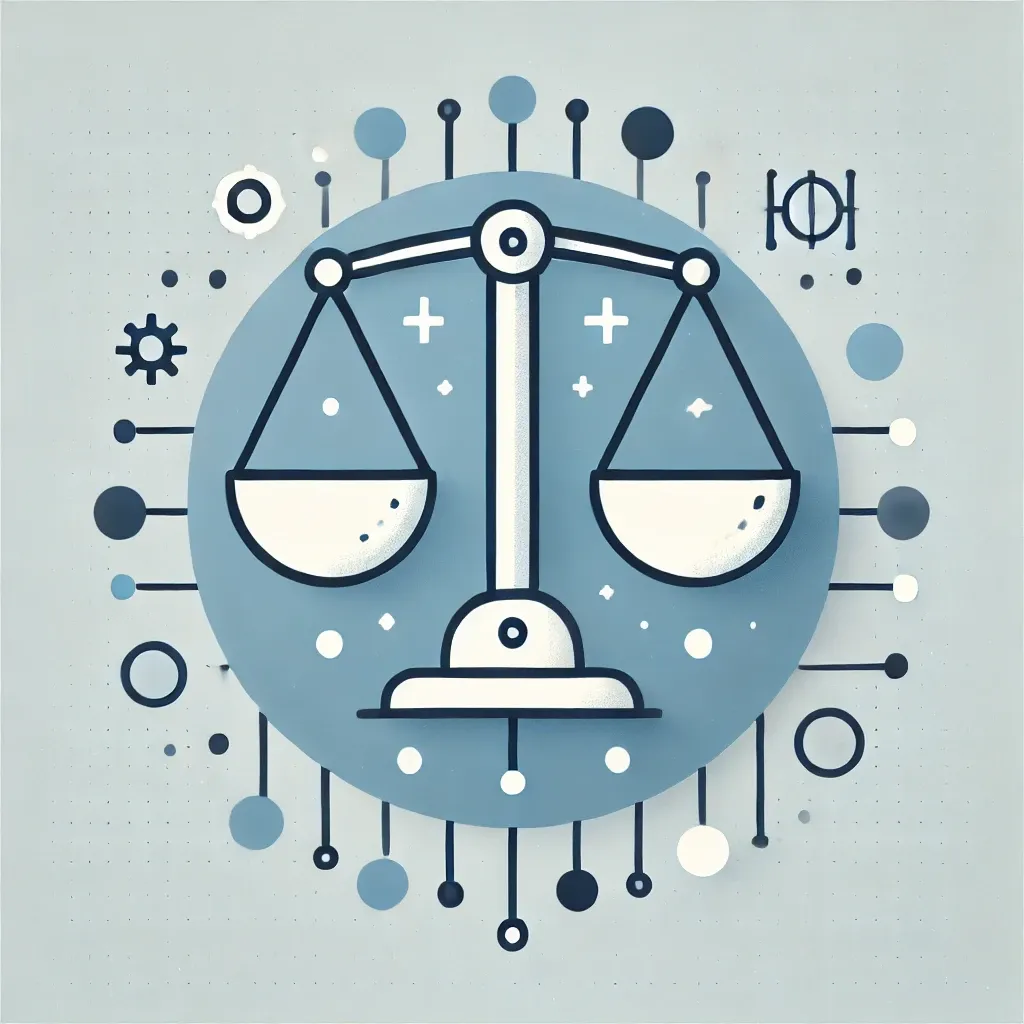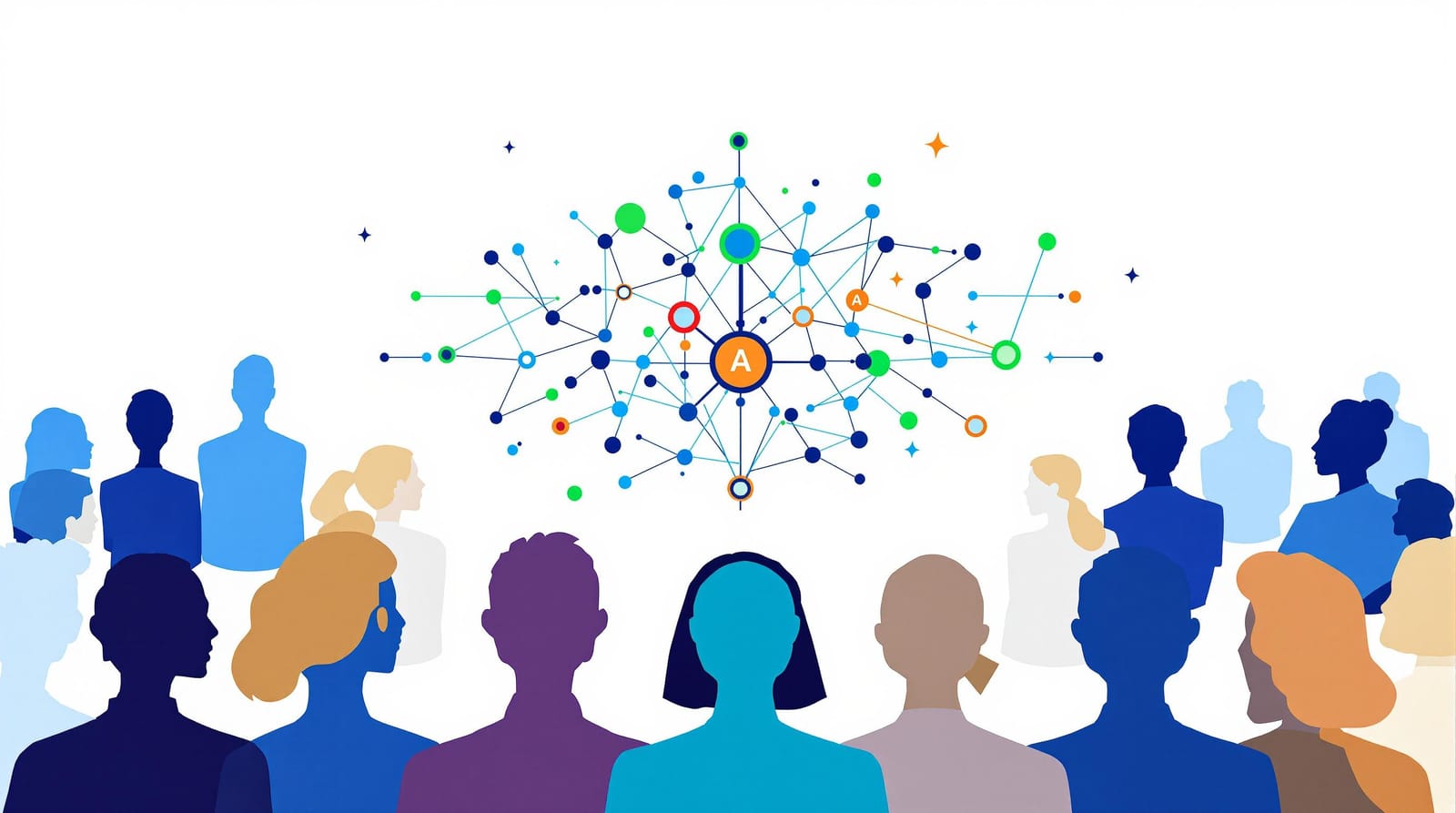As artificial intelligence (AI) continues to advance, it brings with it not just unprecedented opportunities, but also a range of ethical dilemmas. From data privacy to algorithmic bias, the ethical landscape of AI is complex and ever-evolving. In this post, we explore some of the most pressing ethical challenges in AI, discuss why they matter, and highlight the steps being taken to ensure AI is developed and deployed responsibly.
1. Data Privacy: Balancing Innovation and Individual Rights

AI systems often require vast amounts of data to function effectively, but this raises serious concerns about privacy:
The Challenge: Collecting and using personal data without explicit consent can infringe on individuals' privacy rights. Additionally, the risk of data breaches and misuse is ever-present.
Why It Matters: Personal data is a sensitive asset, and its misuse can lead to identity theft, surveillance, and discrimination.
What’s Being Done: New regulations, such as the General Data Protection Regulation (GDPR) in Europe, mandate stricter controls on data collection and usage. Organizations are also developing privacy-preserving AI techniques, such as differential privacy and federated learning, to minimize risks.
2. Algorithmic Bias: Ensuring Fairness in AI Decision

AI systems can unintentionally perpetuate and amplify human biases:
The Challenge: If AI algorithms are trained on biased data, they can produce biased outcomes, reinforcing stereotypes and discrimination in critical areas like hiring, lending, and law enforcement.
Why It Matters: Biased AI can lead to unfair treatment of individuals and communities, undermining trust in AI systems.
What’s Being Done: Researchers are developing techniques to detect and mitigate bias in AI models. There is also a growing emphasis on creating diverse datasets and involving ethicists and social scientists in AI development.
3. Transparency and Explainability: Opening the AI Black Box

Many AI models, especially deep learning models, are often considered "black boxes" because their decision-making processes are not transparent:
The Challenge: Lack of transparency in AI systems makes it difficult to understand how decisions are made, which is particularly problematic in high-stakes scenarios like healthcare or criminal justice.
Why It Matters: Without transparency, it is challenging to ensure accountability, detect biases, or correct errors, potentially leading to unjust or harmful outcomes.
What’s Being Done: The field of Explainable AI (XAI) is focused on developing techniques to make AI models more interpretable and understandable. Some organizations are also adopting AI audit processes to evaluate decision-making.
4. Accountability: Who is Responsible for AI Decisions?

Determining accountability for AI-driven decisions is a complex issue:
The Challenge: When AI systems make decisions, it's often unclear who should be held accountable—the developers, the users, or the organizations deploying the AI.
Why It Matters: Accountability is essential for maintaining public trust and ensuring that AI is used ethically and responsibly.
What’s Being Done: Legal frameworks are evolving to address accountability in AI, and there are calls for clearer guidelines on liability and ethical responsibilities for AI developers and users.
5. Job Displacement: Navigating the Future of Work

AI’s ability to automate tasks raises concerns about job displacement and economic inequality:
The Challenge: As AI and automation technologies advance, many jobs—particularly those involving routine or manual tasks—are at risk of being replaced by machines.
Why It Matters: Job displacement can lead to economic disparities and social unrest if not managed properly.
What’s Being Done: There is a growing emphasis on reskilling and upskilling workers to prepare them for AI-driven jobs. Governments, educational institutions, and organizations are investing in programs that promote digital literacy and lifelong learning.
6. Ethical Use of AI in Surveillance: Striking the Right Balance

AI technologies are increasingly used for surveillance purposes, raising concerns about privacy and civil liberties:
The Challenge: AI-driven surveillance systems, such as facial recognition, can be used for mass surveillance, often without consent, potentially leading to abuse and infringement of civil rights.
Why It Matters: Overreliance on surveillance technologies can undermine democracy and human rights.
What’s Being Done: Several cities and countries are implementing regulations to limit the use of AI in surveillance. Ethical AI frameworks are being developed to ensure these technologies are used in a way that respects human rights.
7. Military Use of AI: Navigating the Ethics of Autonomous Weapons

The use of AI in military applications, particularly autonomous weapons, presents significant ethical concerns:
The Challenge: Autonomous weapons systems, capable of making life-and-death decisions without human intervention, raise moral and legal questions about accountability and the rules of engagement.
Why It Matters: The potential misuse of AI in warfare could lead to unintended escalation, civilian casualties, and violations of international humanitarian laws.
What’s Being Done: International bodies like the United Nations are debating regulations and frameworks to govern the use of AI in military applications, with some advocating for a complete ban on autonomous weapons.
Conclusion
The ethical implications of AI are vast and complex, touching on every aspect of our lives. As AI technology continues to evolve, so too must our approach to its ethical development and deployment. At AI Informer Hub, we believe in fostering a balanced, informed dialogue around these issues to help navigate this complex landscape.
Stay Updated on AI Ethics!
Want to stay informed about the latest discussions on AI ethics? Subscribe to our newsletter for updates on the latest debates and developments in the AI world.




